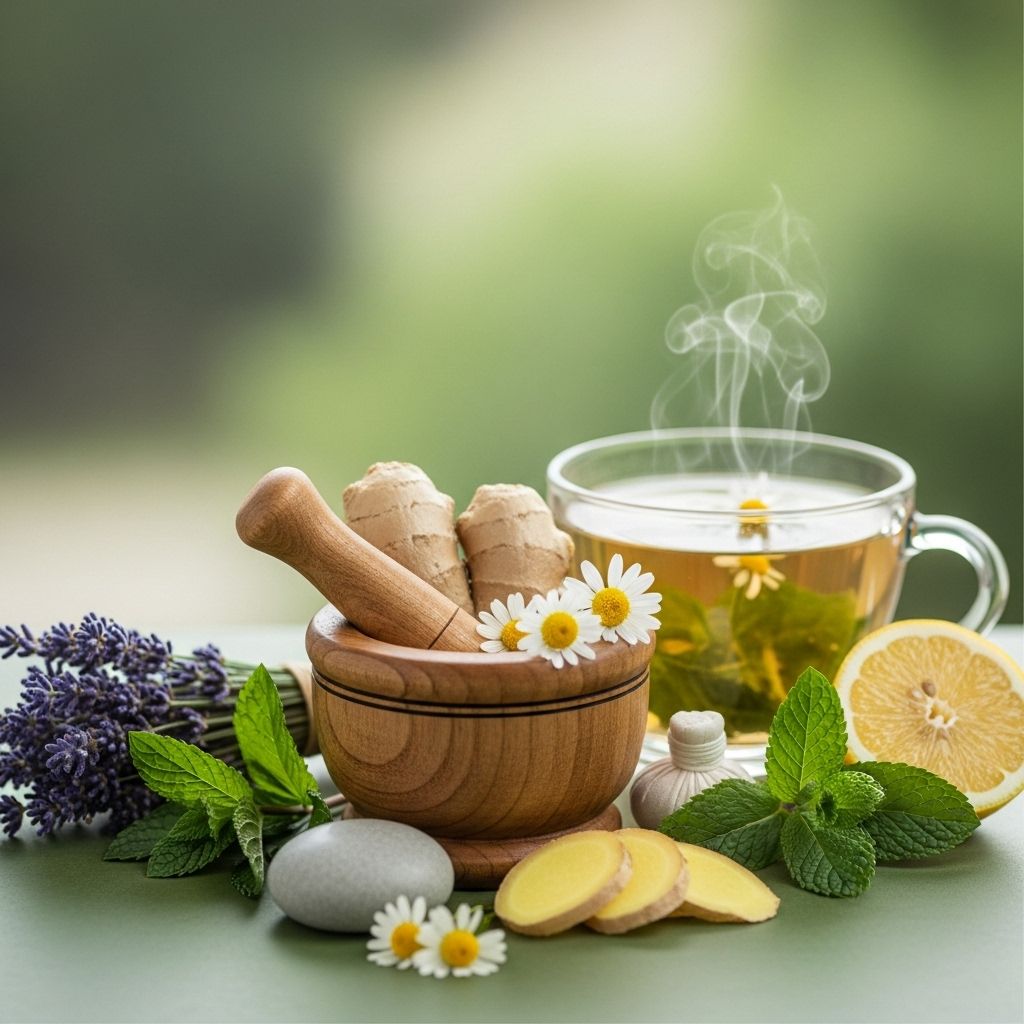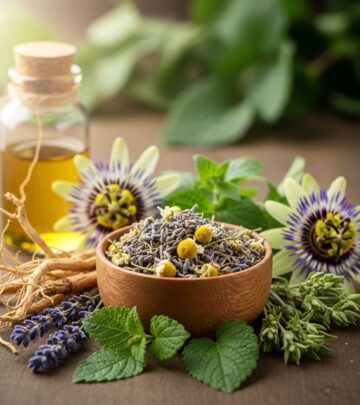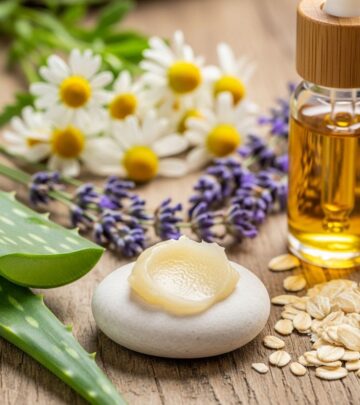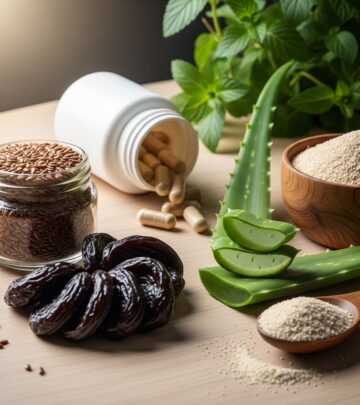Migraine Relief: 7 Effective Natural Remedies to Soothe Headaches
Discover gentle, evidence-based approaches to managing migraines naturally, from herbs and aromatherapy to lifestyle changes.

Migraines are more than just severe headaches. Characterized by throbbing pain, sensitivity to light and sound, nausea, and sometimes even visual disturbances, these neurological episodes can significantly impact daily life. While conventional medications provide relief for many, an increasing number of individuals seek natural remedies as part of a comprehensive, gentle approach to managing migraine symptoms.
This guide explores seven natural solutions for easing migraines. Drawing upon scientific studies and the wisdom of herbal traditions, these techniques offer alternatives for alleviating headache pain, reducing attack frequency, and enhancing overall well-being.
Table of Contents
- Understanding Migraines and Headaches
- Identifying Common Triggers
- Overview: Why Choose Natural Remedies?
- 1. Lavender: The Calming Essential Oil
- 2. Peppermint: Cool Relief for Throbbing Pain
- 3. Ginger: Taming Nausea and Pain
- 4. Feverfew: The Classic Migraine Herb
- 5. St. John’s Wort: Easing Headaches Linked to Stress
- 6. Rosemary: Reducing Tension and Inflammation
- 7. Basil: Soothing Tension Headaches
- Practical Lifestyle Tips for Migraine Prevention
- Comparison Table: Natural Remedies for Migraines
- Frequently Asked Questions
Understanding Migraines and Headaches
Migraines affect an estimated 12% of the global population, striking individuals of all ages and backgrounds. Unlike ordinary tension headaches, migraines are complex neurological events that may involve:
- Severe throbbing pain, often on one side of the head
- Nausea or vomiting
- Increased sensitivity to light, sound, or odors
- Possible aura – visual or sensory disturbances
The unpredictable nature and intensity of migraines can disrupt work, relationships, and overall quality of life. While medications are commonly prescribed, many people seek additional supportive options, especially for reducing frequency or easing mild to moderate attacks.
Identifying Common Triggers
Recognizing and avoiding personal migraine triggers is pivotal for prevention. While each person may have individual sensitivities, common triggers include:
- Certain foods and additives (e.g., aged cheese, chocolate, MSG)
- Caffeine in excess or sudden withdrawal
- Hormonal fluctuations
- Changes in sleep patterns
- Stress or emotional tension
- Dehydration
- Environmental factors, like flickering lights or strong smells
Overview: Why Choose Natural Remedies?
Natural remedies for migraines appeal for several reasons:
- A desire to avoid side effects associated with long-term medication use
- An interest in addressing the root causes, not just masking pain
- Integrating holistic care habits for overall wellness
Below, we explore seven plant-based and lifestyle approaches—backed by scientific studies and traditional uses—to help relieve and prevent migraines.
1. Lavender: The Calming Essential Oil
Lavender essential oil (Lavandula angustifolia) has long been known for its soothing properties. Its role in migraine management has attracted both anecdotal and clinical interest.
- Inhalation of lavender oil can significantly reduce migraine pain severity and associated symptoms when applied early in an attack.
- One clinical trial found patients reported pain relief after fifteen minutes of inhaling the vapor from a few drops of lavender oil applied to the upper lip or diffused in a room.
Practical tips:
- Place 2–3 drops on a tissue and inhale gently at onset
- Add diluted oil to temples or wrists for topical relief
- Diffuse oil in your living space to promote relaxation
Lavender tea or infusion can also support relaxation and gentle pain relief, making it a versatile ally for headache sufferers.
2. Peppermint: Cool Relief for Throbbing Pain
Peppermint (Mentha piperita) is renowned for its cooling, numbing effects. The menthol content in peppermint essential oil may help relieve headache pain and calm the nervous system.
- Clinical research finds that applying a diluted peppermint oil solution to the temples can reduce tension-type headache pain.
- Some studies show nasal inhalation of peppermint oil, or massaging diluted oil into the scalp, also produces rapid relief from migraine symptoms.
How to use:
- Mix a few drops of peppermint oil with a carrier oil and gently massage onto temples, forehead, and the back of the neck
- Drink a fresh peppermint leaf infusion or tea for a soothing experience
Do not apply undiluted peppermint oil directly to the skin and avoid contact with the eyes.
3. Ginger: Taming Nausea and Pain
Ginger (Zingiber officinale) is both a time-tested anti-nausea remedy and a powerful anti-inflammatory agent. Recent research supports its use for:
- Reducing migraine intensity, sometimes with results comparable to prescription medication such as sumatriptan but with fewer side effects
- Easing nausea and vomiting frequently accompanying migraine attacks
Ways to use ginger for migraines:
- Brew fresh ginger root tea at the first sign of symptoms
- Chew on candied ginger or add ginger powder to drinks and smoothies
- Consider ginger supplements after consulting a healthcare provider
Ginger is generally well tolerated and can be easily incorporated into daily routines, but always start with small amounts to assess your tolerance.
4. Feverfew: The Classic Migraine Herb
Feverfew (Tanacetum parthenium) is a traditional herbal remedy dating back centuries. Its small daisy-like flowers have been used to treat headaches, particularly migraines. Recent studies suggest:
- Feverfew may reduce the frequency and intensity of migraine attacks, especially when taken consistently as a preventative supplement
- Its benefits appear to extend to tension headaches as well
How to use feverfew:
- Standardized supplements (always follow expert guidance for dosage and duration)
- Fresh or dried leaves, though less common, can be used in infusions
Be mindful: Feverfew can have interactions with certain medications and is not recommended during pregnancy. Consult your doctor before use.
5. St. John’s Wort: Easing Headaches Linked to Stress
St. John’s Wort (Hypericum perforatum) is best known for its impact on mood, but it also offers gentle pain-relieving and anti-inflammatory properties. This herb is especially useful for:
- Treating headaches associated with anxiety or low mood
- Supporting relaxation and mental clarity for migraine sufferers prone to stress-related attacks
Usage options:
- Infusion: Steep dried St. John’s Wort leaves in hot water for a calming tea
- Occasional use of essential oil in aromatherapy (infusion is more common)
St. John’s Wort interacts with many prescription drugs, including antidepressants and oral contraceptives. Seek medical advice before starting this supplement.
6. Rosemary: Reducing Tension and Inflammation
Rosemary (Rosmarinus officinalis) stands out for its dual action as an anti-inflammatory and a muscle relaxant. People use rosemary to:
- Ease headache pain resulting from muscle tension or stress
- Reduce systemic inflammation potentially associated with migraine triggers
How to benefit from rosemary:
- Massage diluted rosemary essential oil into temples and neck
- Brew a fragrant rosemary infusion (dried or fresh leaves steeped in hot water)
This herb can be enjoyed in both culinary and medicinal forms, making it easy to add to your daily regimen.
7. Basil: Soothing Tension Headaches
Basil (Ocimum basilicum) offers gentle relaxation benefits for those with mild tension headaches or muscle-related discomfort. With its sweet aroma and antispasmodic properties, basil is traditionally used to:
- Alleviate tension and muscular tightness associated with headaches
- Promote a sense of calm and relaxation
Use basil by:
- Consuming an infusion of fresh or dried basil leaves
- Adding fresh basil to meals, combining flavor and wellness
Basil oil is rarely used topically for headaches, but its culinary use makes integration into daily life simple and delicious.
Practical Lifestyle Tips for Migraine Prevention
Pairing herbal remedies with simple lifestyle changes can further reduce migraine frequency and severity:
- Stay hydrated – Dehydration is a common migraine trigger. Monitor your water intake, especially during hot weather or illness.
- Apply cold or warm compresses – An ice pack or chilled cloth on the forehead or neck can numb pain and reduce throbbing. Alternatively, a warm compress may relax tense muscles.
- Practice stress management – Yoga, meditation, and deep breathing can help lower stress hormones and calm the nervous system.
- Maintain consistent sleep patterns – Aim for regular sleep and wake times to avoid triggering migraines.
- Monitor triggers – Keep a migraine diary to pinpoint and avoid specific foods, environments, or routines that may trigger attacks.
Comparison Table: Natural Remedies for Migraines
| Remedy | Primary Benefits | Best Form / Use | Cautions |
|---|---|---|---|
| Lavender | Reduces pain, calms nervous system | Aromatherapy, tea, topical oil | Avoid ingesting oil, potential allergies |
| Peppermint | Soothes headache pain, cools skin | Topical oil (diluted), tea, inhalation | Do not apply undiluted oil to skin |
| Ginger | Reduces pain, controls nausea | Infusion, supplements, candied form | Large doses may upset stomach |
| Feverfew | Lowers attack frequency/intensity | Supplements, tea | Interactions, not for pregnancy |
| St. John’s Wort | Reduces stress headaches, mood support | Tea, infusions, occasional oil aroma | Serious drug interactions |
| Rosemary | Relieves muscle tension & inflammation | Topical oil, infusion, culinary | Not safe in high doses for pregnancy |
| Basil | Relaxes muscles, soothes tension | Infusion, culinary use | Rare allergies |
Frequently Asked Questions (FAQs)
Q: Are natural remedies enough to replace migraine medication?
A: Many natural remedies help reduce the frequency or intensity of migraines, but severe or chronic migraines may still require prescription treatments. Consult your healthcare provider for a customized plan.
Q: How quickly do herbal remedies work for migraine relief?
A: Some remedies, like peppermint and lavender oils, may provide rapid relief within 15–30 minutes if used at the onset of symptoms. Others, such as feverfew, require regular use for weeks to see preventive effects.
Q: Can I combine these natural remedies together?
A: Many people find benefit in combining approaches—for example, using a cold compress alongside lavender aromatherapy. However, always start with one remedy at a time and watch for any side effects or allergies.
Q: When should I seek medical help for a headache?
A: Seek immediate medical attention for sudden, “worst-ever” headaches, visual or speech disturbances, fevers, neck stiffness, or if headaches are frequent and disabling. These could indicate a medical emergency or serious condition.
Q: Are these remedies safe during pregnancy?
A: Not all remedies are safe in pregnancy. Avoid feverfew and high doses of rosemary while pregnant, and always talk to your doctor before starting any supplement or herb.
Q: How do I know which remedy is right for me?
A: Start by identifying your specific migraine triggers and symptoms. Experiment gently, keep a journal, and consult with a healthcare professional or trained herbalist if unsure.
References
- https://www.healthline.com/health/natural-ways-to-reduce-migraines
- https://www.nuvancehealth.org/health-tips-and-news/natural-migraine-remedies-tips-for-pain-free-days
- https://tofillo.com/en/the-best-natural-headache-relief-5-herbal-allies/
- https://www.mayoclinic.org/diseases-conditions/migraine-headache/in-depth/migraines/art-20047242
- https://www.medicalnewstoday.com/articles/322814
- https://www.unitypoint.org/news-and-articles/9-natural-strategies-for-headache-relief-infographic
- https://www.mayoclinic.org/diseases-conditions/migraine-headache/diagnosis-treatment/drc-20360207
- https://www.webmd.com/migraines-headaches/ss/slideshow-home-remedies-for-migraines
Read full bio of medha deb












